ISSUES
# 4 (41)2020
Issued 1.01.
 # 3(40)2020
# 3(40)2020
Issued 1.10.
 # 2(39)2020
# 2(39)2020
Issued 1.07.
 # 1(38)2020
# 1(38)2020
Issued 1.04.
 # 4(37)2019
# 4(37)2019
Issued 01.01.
 # 3(36)2019
# 3(36)2019
Issued 1.10.
 # 2(35)2019
# 2(35)2019
Issued 1.07.
 # 1(34)2019
# 1(34)2019
Issued 1.04.
 # 4(33)2018
# 4(33)2018
Issued 1.01.
 # 3(32)2018
# 3(32)2018
Issued 1.10.
 # 2(31)2018
# 2(31)2018
Issued 1.07.
 # 1(30)2018
# 1(30)2018
Issued 1.04.
 # 4(29)2017
# 4(29)2017
Issued 1.01.
 # 3(28)2017
# 3(28)2017
Issued 1.10.
 # 2(27)2017
# 2(27)2017
Issued 1.07.
 # 1(26)2017
# 1(26)2017
Issued 1.04.


PARTNERS

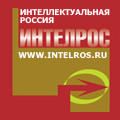
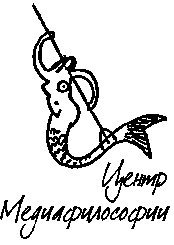

 |
 |
Archives
|
# 2(15) 2014: Antropological Turn |

Topic of the Issue
|
 |
Russia, Samara.
Samara State University. The Department of philosophy of humanitarian faculties.
Head of the Department. PhD in philosophy, professor.
The Anthropological Turn of Culture: A New Version of the Project of Modernity
The article claims that the anthropological turn in philosophy and the humanities that took place in the 20th century was caused by the anthropological turn of culture itself. Culture has always developed around Man, and its undertakings have always led towards understanding the point of "human life". For instance, the culture of the Renaissance prioritized human behavior, human desires and ambitions, rather than the things a human should be guided by (the Order of Being, Justice, God, etc. ) Although the culture of the Modern Age grew out of the Renaissance's recognition of the values assigned to human interests and preferences, it "hid" the human under behind a screen of things, signs and institutions. The society of the Modern Age subjected Man to the discipline of labor, language and the body (M. Foucault). Friedrich Nietzsche's work is a repetition / echo of the new European thought in relation to the rise of the culture of the Modern Age — the idea of an independent individual defined by power over himself and his fate. Thomas Mann called this appeal of Nietzsche's "the last transformation of the Enlightenment". This is the exact point where a new version of the Modern Age project begins.
The anthropological turn in 20th century culture brought back the main idea of the new European culture — the idea of the inherent value of life, individuality and freedom — and enhanced it with a new axiological meaning.
Thus, the anthropological turn illuminates a curious characteristic of the historical development of culture — the possibility to return to its origins in order to realize itself in yet another new way.
Key words: anthropological turn, culture, Modern Age project, postmodernism, cultural keynotes, the idea of man, individuality, difference
References
- Frank S. L., Dusha cheloveka. Opyt vvedenija v filosofskuju psihologiju / Frank S. L. Predmet znanija. Dusha cheloveka. — SPb.: «Nauka», 1995. — S. 421.
- Hajdegger M. Bytie i vremja. Per. s nem. V. V. Bibihina. — M.: «Ad marginem», 1997.
- The Anthropological Turn in Literary Studies / Schlaeger Jürgen (Ed.). REAL. Yearbook of Research in English and American Literature. Vol. 12. — Tübingen, 1996.
- Losev A. F., Taho-Godi A. A. i dr. Antichnaja literatura: Uchebnik dlja vysshej shkoly / Pod red. A. A. Taho-Godi. — 5-e izd., dorab. — M.: CheRo, 1997. S. 483.
- A. F. Losev. Dvenadcat' tezisov ob antichnoj kul'ture // Studencheskij meridian. 1983. № 9. — S. 13–14, № 10. — S. 14–16; To zhe: Losev A. F. Derzanie duha. Sbornik statej A. F. Loseva / Sost. Ju. A. Rostovcev. — M. 1988. — S. 153–171.
- Gurevich A. Ja. Kategorii srednevekovoj kul'tury. Izd. 2-e, ispravlennoe i dopolnennoe. — M.: «Iskusstvo» 1984. — S. 247.
- Valla Lorenco. Ob istinnom i lozhnom blage. O svobode voli. Per. s lat. N. V. Revjakinoj, I. H. Chernjak, V. A. Andrushko. — M.: «Nauka», 1989. — S. 95.
- Gegel'. Soch. T. IV. — M., 1959. — S. 302.
- Kant I. Otvet na vopros: chto takoe prosveshhenie // Kant I. Soch. v 6-ti tt., t. 6. — M.: «Mysl'», 1966. — S. 27 (Kursiv Kanta — V. K,).
- Horkhajmer M., Adorno T. Dialektika Prosveshhenija. Filosofskie fragmenty. — M. -SPb.: «Medium», «Juventa», 1997. — S. 20.
- Habermas Ju. Modern — nezavershennyj proekt. URL: http://www.gumer.info/bogoslov_Buks/Philos/Article/Hab_Modern.php (data obrashhenija 25.05.2014).
- Fuko M. Slova i veshhi. Arheologija gumanitarnyh nauk. — SPb.: A-cad, 1994. — S. 33.
- Deljoz Zh. Nicshe i filosofija. / Per. s franc. O. Homy pod redakciej B. Skuratova. — M.: «Ad Marginem», 2003. — S. 277.
- Mann T. Filosofija Nicshe v svete nashego opyta // Mann T. Sobr. soch. v 10-ti tt., t. 10. — M.: «Hudozhestvennaja literatura», 1961. — S. 389.
- Sheler M. Polozhenie cheloveka v Kosmose // Problemy cheloveka v zapadnoj filosofii. — M., 1988. — S. 31, 63.
- Hajdegger M. Onto-teo-logicheskoe stroenie metafiziki // Hajdegger M. Tozhdestvo i razlichie. / Per. s nem. A Denezhkina. — M.: «Gnozis», «Logos», 1977. — S. 49.
- Deljoz Zh. Razlichie i povtorenie. / Per. s fr. N. B. Man'kovskoj i Je. P. Jurovskoj. — SPb.: «Petropolis», 1998. — S. 71.
- Ben'jamin V. Proizvedenie iskusstva v jepohu ego tehnicheskoj vosproizvodimosti. Izbrannye jesse / Pod. red. Ju. A. Zdorovogo. — M.: Medium, 1996.
- Fukujama F. Konec istorii i poslednij chelovek. / Per. s angl. M. B. Levina. — M.: «Izd. AST», 2004. — S. 7
|
 |
Alexander GOVORUNOV
Russia, St. Petersburg.
Saint-Petersburg State University. Institute of Philosophy.
Department of philosophical anthropology.
PhD in philosophy, professor.
Philosophical Anthropology — a Project Revised
The present article deals with the destiny of a disciplinary project of philosophical anthropology, whose former popularity has slowly faded to obscurity. In addition, one can observe the general diminishing interest in the subject of philosophical anthropology. Under this heading, one can find very diverse types of works: from the history of philosophy — to studies in historical and cultural anthropology, and cultural studies. Is the subject of philosophical anthropology still valid in its initial sense?
In the article, a brief explanation of the main methodological programs within each of these anthropological discourses is given. A key point in the demarcation between scientific and humanitarian discourses on Man is the relation towards the concept of "human nature".
Philosophical anthropology begs the fundamental questions: Is being human such a good thing? — and — Is it a good idea to stop being human?
Key words: philosophical anthropology, natural sciences and humanities, reflexivity, human nature, historicism, evolutionary theory, human ethology, superman, posthuman
References
- Dolmejer F. Vozvrashhenie filosofskoj antropologii // Chelovek, 2010, № 4. — S. 7.
- Clammer J. The Project of Philosophical Anthropology // Philosophy and Anthropology: Border Crossing and Transformations. eds. Ananta Kumar Giri and John Clammer. — N.Y., L. Anthem Press, 2013.
- Sheler M. Polozhenie cheloveka v kosmose // Sheler M. Izbrannye proizvedenija. — M.: Gnozis, 1994.
- Fouli R. Eshhe odin nepovtorimyj vid. — M.: Mir, 1990.
- Lorenc K. Agressija (Tak nazyvaemoe zlo). — SPb.: Amfora, 2001.
- Dol'nik V. R. Neposlushnoe ditja biosfery. — SPb.: Petroglif, 2009. Butovskaja M.L. Tajny pola.
- Sheffer Zh.-M. Konec chelovecheskoj iskljuchitel'nosti. — M.: NLO, 2010.
- Nagel T. The View from Nowhere. — N.Y., Oxford University Press, 1986.
- Smit R. Byt' chelovekom: Istoricheskoe znanie i sotvorenie chelovecheskoj prirody. — M.: «Kanon+» i ROOI «Reabilitacija», 2014. — S. 99.
- Tishhenko P. D. Bio-vlast' v jepohu bio-tehnologij. — M., 2001.
- Habermas Ju. Budushhee prirody cheloveka. Na puti k liberal'noj evgenike? — M.: Ves' mir, 2002.
- Fukujama F. Nashe postchelovecheskoe budushhee. — M.: OOO "Izdatel'stvo ACT": OAO "LJuKS", 2004.
- Kutyrev V. A. Antropologija i anti-antropologija // Chelovek, 2005, № 2.
|
 |
Russia, St. Petersburg.
St. Petersburg State University. Faculty of Philosophy.
PhD, Professor.
Cultural "Technologies" of the Formation of Man (a Qualitative Approach)
The important achievement of anthropological turn is the criticism of both the biological and theological explanation of Man, whose founders tried to get rid of a reduction as to animal, and divine. As a result, the history of Man begins with the formation of an artificial environment, in which Man can exist. The important achievement of the new approach to Man is the synchronization of the anthropological development in the fields of morphology, ethnography, historical linguistics and philosophy.
The question of the origins of Man and community cannot be separated . The explanation of the formation and development of Man assumes a reconstruction — and demands both intellectual and practical ways of educating the people. Thus, an attempt at their description under conditions of modernity has been undertaken.
Key words: man, animal, evolution, body, ritual, consciousness, work, culture, game
References
- Ten V. V. Arheologija cheloveka. Proishozhdenie tela, razuma, jazyka. — SPb., 2011.
- Girenok F. I. Autografija jazyka i soznanija. — M. 2010.
- Naprimer, F. Nicshe, L. Klagesom, A. Gelenom, L. Bol'kom i P. Al'sbergom, B.F, Porshnevym.
- Jelias N. O processe civilizacii. – M., 2001.
- Duerr H-P. Nacktheit und Scham. Der Mythos vom Zivilisationsprozess. Bd. 1–5. — Frankfurt am Main. 1994 – 2004.
- Gegel' G.F.V. Filosofija istorii. — M., 1957. — S. 45
- Ryklin M. Terrorologiki. — Tartu–Moskva, 1992. — C. 18.
- Erofeev V. Moskva–Petushki. — M., Prometej, 1989. — S.26–27.
- Ben'jamin V. Moskovskij dnevnik. – M., 1997. — S.39.
- Sokolova N. L. Populjarnaja kul'tura Web 2.0: k kartografii sovremennogo medialandshafta. — Samara: Izd-vo «Samarskij universitet», 2010. — 204 s.
|
 |
Ukraine, Kiev.
National Academy of Personnel Management / Center of Arts and Culture.
Department of Theory and History of Culture. PhD, Seniour Lecturer.
"Sense" and "A Sense of Life" as Categories of Philosophical Anthropology
The philosophical problem of the basic constants of human existence is considered in this article. The concepts of "sense" and "a sense of life", as a category of philosophical anthropology are considered, as the fundamental principles of the human worldview. Different types of meta-senses are correlated with all types of culture; they define a person's openness to dialogue, and create a new sense in the discussion of various subjects and their perspectives. The current paper provides an analysis of philosophic and anthropologic dimensions of the "meta-sense" concept, which makes it possible to discover hidden dimensions of human existence, and cultural forms of being. A typology of different "meta-senses", as a basic level of cognition, is proposed in the article. In addition, specifics relating to Russian philosophical tradition about the reflection of "sense" and "a sense of life" is also discussed in this article.
Key words: sense, sense of life, meta-sense, types of culture, constants
References
- A. A. Uhtomskij v dnevnikah i pis'mah. — SPb.: Izd. SPb. un-ta, 1992. — 234 s.
- Averincev S. S. Pojetika rannevizantijskoj literatury. — M.: CODA, 1997. — 343 s.
- Golosovker Ja. Je. Imaginativnyj absoljut. Ch. I. // Golosovker Ja. Je. Logika mifa. — M.: Nauka, 1987. — S. 114–164.
- Kozeleckij Ju. Chelovek mnogomernyj. Psihologicheskie jesse. — K.: Lybid', 1991. — 288 s.
- Malahov V. A. Smysl zhizni i nravstvennoe otnoshenie lichnosti k miru. — M.: Znanie, 1986. — 64 s.
- Mamardashvili M. K. Klassicheskij i neklassicheskij idealy racional'nosti. — M.: Labirint, 1994. — 94 s.
- Mamardashvili M. K. Organy ontologii (Doklad v Institute filosofii (Moskva, 1 aprelja 1986 g.) // Jel. resurs: http://www.philosophy.ru/library/mmk/mamard_organy.html#ftn1
- Petrushenko V. L. Principy dialektiki i problema smysla v kul'ture // Problemy filosofii: Resp. nauchn. sbornik. — Vyp. 78. — K.: KGU, 1988. — S. 39–46.
- Tolstoj L. N. O zhizni // Sobr. soch. V 22 t. — T. 17. — M.: Hud. lit., 1983. — S. 7–135.
- Trubnikov N. N. Prospekt knigi o smysle zhizni // Kvintjessencija: Filosofskij al'manah. — M.: Politizdat, 1990. — S. 425–447.
- Frank S. Smysl zhizni // Smysl zhizni: Antologija / Sost., obshh. red. N. K. Gavrjushina. — M.: Progress-Kul'tura, 1994. — S. 489–583.
- Frankl V. Samotranscendencija kak fenomen cheloveka // Frankl V. Chelovek v poiskah smysla: Sbornik: Per. s angl. i nem. — M.: Progress, 1990. — S. 54–69.
- Hersonskij B. Smysl zhizni: obretenie i utrata // Suicidologija: proshloe i nastojashhee. — M.: Kogito-Centr, 2001. — S. 217–226.
- Shtiler G. «Smysl» istorii, «smysl» chelovecheskogo sushhestvovanija // Leske M., Redlov G., Shtiler G. Pochemu imeet smysl sporit' o ponjatijah / Per. s nem. — M.: Politizdat, 1987. — S. 172–264.
|
 |
Elena BOLOTNIKOVA
Russia. Samara.
Samara State Agricultural Academy (SSAA)
Assistant professor of humanities and social and political sciences. PhD.
The Perspective of Self-Care: Philosophy Versus Religion
According to the author, the discovery of the importance of non-existence is the focal point in the individual's search for the meaning of his own existence. Gaining a sense of being an individual is associated with the religion or philosophy of the future. The broad interpretation of philosophy — as a structured form of self-care, most relevant to a contemporary — is based upon M. Mamardashvili, M. Heidegger, J. P. Sartre, M. Foucault and the texts of other famous authors.
Key words: the meaning of life, discursive / non-discursive mode of knowledge, self-care, telos, ascetic practices, the ethical substance, mode of subjection
References
- Gajdenko P. P. Proryv k transcendentnomu. Novaja ontologija HXveka. — M.: Respublika, 1997. — 495s.
- Konev V. A. Ontologicheskie osobennosti mira cheloveka. Samara: Izd-vo «Samarskij universitet», 2003. — 72s.
- Mamardashvili M. K. Moj opyt netipichen. — Spb.: Azbuka, 2000. — 400s.
- Baudrillard Jean. In the Shadow of the Silent Majorities: Or, the End of the Social and Essays. 2007. MIT Press. P. 128.
- Foucault M. Technologies of the Self / Technologies of the Self. A Seminar with Michel Foucault, ed. by L. H. Martin, H. Gutman and P. H. Hutton, Univ. of Massachusetts Press, 1988. p. 16–49.
- Foucault M. On the Genealogy of Ethics: An Overview of Work in Progress. Ethics, Subjectivity and Truth: Essential Works of Foucault 1954 — 1984, vol. 1, ed. Paul Rabinow. New York: New Press, 1997. p. 253–280.
- Foucault M. The Archaelogy of Knowledge. Random House LLC, 2012. P. 256.
- Hadot Pierre. What Is Ancient Philosophy. Belknap press. 2004. P. 384
- Plato. The Apology of Socrates. / Plato's Apology, Crito and Phaedo of Socrates. Worcester College, Oxford. 2004. p. 13–73. P. 328
- Richard of St Victor. On the four degrees of violent love. / On Love. A Selection of Works of Hugh, Adam, Achard, Richard, and Godfrey of St Victor. Hugh Feiss OSB ed. Turnhout, 2011 BREPOLS. p. 264–300.
- Sartre Jean-Paul. Being and Nothingness. The principle text of modern existentialism. First Washington Square Press, 1993. P. 864
- Sennett Richard. The Fall of Public Man. Penguin Books. 2003. P. 416
|
 |
Peter PLYUTTO
Russia, Moskow.
Independent Researcher, PhD.
Culture as a Game: A Study of the Reality of Sociocultural Virtuality
This article provides an explanation of the project of the study of sociocultural illusions, a definition of illusions, and a classification of human delusions. In addition, it attempts to understand the in-illusory reality in the form of a sui generis attractor of the socio-cultural illusions presented in this article. Moreover, the article discusses the double meaning — both serious and playful — of socio-cultural illusions, which defines by using a fundamentally new interpretation of a well-known conception of J. Heizinga, who perceives human culture as a game. The reality of socio-cultural illusions is understood as a peculiar reality of virtuality.
Key words: socio-cultural illusions, in-illusory reality, attractor, play, reality of virtuality
References
- Berdjaev N. A. Novoe srednevekov'e. Razmyshlenie o sud'be Rossii i Evropy // Berdjaev N. A. Smysl istorii. Novoe srednevekov'e. — M.: Izdatel'stvo «Kanon+», 2002. - S. 296).
- Pljutto P. A. Religija intellektualov: sud'ba vysokih fikcij «tancujushhego» Gegelja // Voprosy filosofii. — 2005. — № 4. — S. 145–157.
- Pljutto P. A. «Gumanisticheskij naturalizm» kak rabotajushhaja v kul'ture illjuzija autentichnogo mifa // Vestnik RGGU. Serija «Filosofija. Sociologija». — 2007. — № 2–3. — S. 76–91.
- Pljutto P. A. Illjuzija autentichnogo mifa: revoljucija i literatura // Voprosy filosofii. — 2007. — № 12. — S. 28–40.
- Pljutto P. A. Istina autentichnogo mifa i «lozh'» kul'tury // Vestnik RGGU. Serija «Filosofija». — 2008. — № 7. — S. 213–225.
- Pljutto P. A. Koncepcija autentichnogo mifa i analiz sociokul'turnyh illjuzij. — M.: Izdatel'stvo RGGU, 2009.
- Kant I. Antropologija s pragmaticheskoj tochki zrenija // Kant I. Sobr. soch. v 6 tt. — M.: Mysl', 1966. T.6. S. 382.
- Sheler M. Filosofskoe mirovozzrenie // Sheler M. Izbrannye proizvedenija. — M.: Gnozis, 1994. S. 7.
- Zhizhek S. Real'nost' virtual'nogo / Slavoj Žižek. The reality of the Virtual. Videolekcija, prochitannaja 11 dekabrja 2003 g., London. A Ben Wright film production, 2004 // Rezhim dostupa: http://www.realityofthevirtual.com (oficial'nyj sajt fil'ma).
- Hjojzinga J. Homo ludens: Opyt opredelenija igrovogo jelementa kul'tury // Hjojzinga J. Homo ludens. V teni zavtrashnego dnja. — M.: Izdatel'skaja gruppa «Progress», «Progress-Akademija», 1992. — S. 5–240.
- Gegel' G.V.F. Fenomenologija duha. — SPb.: Nauka, 2002. S. 30.
- Pasternak B. L. Polnoe sobranie sochinenij. V 11 tt. — M., 2004. T.2. S. 58.
|
 |
Margarita SKOMOROKH
Russia, Saint Petersburg.
Saint Petersburg State University. Institute of Philosophy.
Postgraduate student, member of the Laboratory of Computer Games Research
(Center for Mediaphilosophy, Saint Petersburg State University)
Videogames and the Utopia of Interactivity: What Are Gamers Capable Of?
The author describes multiplayer online games in the context of new media, using the notion of interactivity. The aim of the article is to understand what form the power of media takes in this case, and whether the interactivity of games creates the possibility of resistance to this power. The format of online games is considered, as well as gamers' behavior: different gaming modes and marginal practices are analyzed.
Key words: new media, interactivity, format, scenario, media logic, videogames, gaming modes, flashmob, role-playing, performance
References
- Altheide D. L., Snow L. P. Media Logic. London: Sage, 1979.
- Croft J. "It's Just a Game"— Ethical Reasoning within Virtual Worlds / Good Work Project Report Series. V. 73, 2011.
- Frasca G. Ludology Meets Narratology: Similitude and differences between (video)games and narrative // Ludology. org. URL: http://www.ludology.org/articles/ludology.htm
- Heeter C. Implications of New Interactive Technologies for Conceptualizing Communication / Media Use in the Information Age: Emerging Patterns of Adoption and Consumer Use. Hillsdale, NJ: Lawrens Erlbaum, 1989. P. 217–235.
- Jansson M. Everything I Shoot Is Art. Brescia: Link Editions, 2012.
- Kiousis S. Interactivity: a Concept Explication / New Media & Society. V. 4(3), 2002. P. 355–383.
- MacCallum-Stewart E., Parsler J. Role-Play vs. Gameplay: The Difficulties of Playing a Role in World of Warcraft / Digital Culture, Play, And Identity. Cambridge: MIT Press, 2008. P. 225–246.
- Manovich L. The Language of New Media. Cambridge: MIT Press, 2001.
- Mortensen T. Humans Playing World of Warcraft: or Deviant Strategies? / Digital Culture, Play, And Identity. Cambridge: MIT Press, 2008. P. 203–223.
- Schultz T. Mass Media and the Concept of Interactivity: An Exploratory Study of Online Forums and Reader Email / Media, Culture & Society. V. 22(2), 2000. P. 205–221.
- Smuts A. What Is Interactivity? / Journal of Aesthetic Education. V. 43(4), 2009. P. 53–73.
- Yee N. The Demographics of Role-Playing / The Daedalus project. URL: http://www.nickyee.com/daedalus/archives/001525.php
- Zimmerman E. Narrative, Interactivity, Play, and Game / First Person: New Media as Story, Performance, and Game. Cambrige: MIT Press, 2004. P. 158. P. 154–164.
- Bol'c. N. Azbuka media. M.: Evropa, 2001.
- Zhizhek S. Interpassivnost', ili Kak naslazhdat'sja posredstvom Drugogo. // Zhizhek S. Interpassivnost'. Zhelanie: Vlechenie. Mul'tikul'turalizm. SPb.: Aletejja, 2005.
- Sokolova N. L. Cifrovaja kul'tura ili kul'tura v cifrovuju jepohu? / Mezhdunarodnyj zhurnal issledovanij kul'tury. №3, 2012. S. 6–10.
|
 |
Aiste MISHINYTE
Lithuania, Kaunas.
Kaunas University of Technology.
Media Philosphy, Master of Philosophy.
Man and His Media: Anthropologically Charged Media Philosophy
This article states that due to the problems of defining the concept of media, and due to the existing methodological apparatus, which inherited some of the faults of the early media theories, it is difficult to solve the primordial anthropological question of media philosophy. Thus, the problem of Man and his media is seen in the light of determinism, which means that some unnecessary distinctions are made far too early. Basic deterministic opposition between Man and technology can be solved in another way: it is possible to accept the technological aspect of the human being and the humanistic aspect of technologies. However, is this still anthropology? Searching for an answer, we find ourselves on a quest to define the term media. Finally, we face the theory of mediation, which is based on a temporal continuum, rather than a spatial one. This theory does not only show the impossibility of a universal definition of media, but also the impossibility of observing the process of mediation from within. Thus, the position of the media philosopher cannot be seen as objective and transparent and close attention to the humanistic perspective is needed.
Key words: media philosophy, media anthropology, technological determinism, social constructionism, Man and technology, media, theory of mediation
References
- Askew K. Introduction (to the anthropology of media) // The Anthropology of Media: A Reader. Ed. Askew, Kelly Michelle, and Richard R. Wilk. Malden, MA: Blackwell Publishers, 2002. P. 1–13.
- Barad K. Meeting the Universe Halfway. Durham, NC: Duke University Press, 2007. 525 p.
- Baudrillard J. Requiem for the Media // The New Media Reader. Ed. Wardrip-Fruin, Noah and Nick Montfort. Cambridge, Massachusetts: The MIT Press, 2003. P. 278–288.
- Baudrillard J. Simulations. New York: Semiotext[e], 1983. 159 p.
- Cramer F. Medienwissenschaft — Ein deutscher Sonderweg? Antworten von Florian Cramer // Medienwissenschaft — Ein deutscher Sonderweg? Blog, 2009. URL: http://medienumbrueche. uni-siegen. de/groups/medienwissenschaften/weblog/38962. (30. 05. 2010).
- Flusser V. On the Crisis of Our Models // Flusser V. Writings. Minneapolis: University of Minnesota Press, 2002. P. 75–84.
- Kember S. and Joanna Zylinska. Life After New Media: Mediation as a Vital Process. Cambridge, Massachusetts: MIT Press, 2012. 268 p.
- Lister M. et al. New media: a critical introduction. 2nd edition. Abingdon, Oxfordshire: Routledge, 2009. 446 p.
- Sodeika T., Michelkevičius V. Pokalbis su Tomu Sodeika apie prieitis ir išeitis medijų filosofijoje // Balsas. cc, 2007. URL: http://www. balsas. cc/pokalbis-su-tomu-sodeika-apie-prieitis-ir-iseitis-mediju-filosofijoje. (30. 05. 2014).
- Bodrijjar Zh. Prozrachnost' zla. M.: Dobrosvet, 2000. 258 s.
- Bodrijjar Zh. Simvolicheskij obmen i smert'. M.: Dobrosvet, 2000. 389 s.
- Bodrijjar, Zh. Simuljakry i simuljacija. Tula: Tul'skij poligrafist, 2013. 204 s.
- Makljujen M. Ponimanie Media: Vneshnie rasshirenija cheloveka. M.: Zhukovskij: KANON-press-C, Kuchkovo pole, 2003. 464 s.
- Hajdegger M. Vopros o tehnike // Hajdegger M. Vremja i bytie: Stat'i i vystuplenija: Per. s nemeckogo. M.: Respublika, 1993. C. 221–238.
|
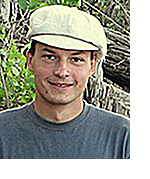 |
Ilya DEMIN
Russia, Samara.
Samara State Aerospace University. Philosophy and History Department.
PhD, senior lecturer.
"Cyber Immortality" and the Transformation of Human Nature: Debiologization or Deantropologization?
In the article, the transhumanistic project of the transformation of human nature and "cyber immortality" is described. Moreover, some fundamental objections, raised in regard to transhumanism in modern philosophical literature, are discussed. The author concludes that the debiologization of man does not mean sine qua non its deantropologization.
Key words: man, transhumanism, cyber immortality, Russian cosmism, the nature of man, the essence of man, humanism, debiologization, deantropologization
References
- Bostrom Nik. FAQ po transgumanizmu / per. D. Medvedeva // Rossijskoe transgumanisticheskoe dvizhenie. URL: http://www.textfiles.com/russian/cyberlib.narod.ru/lib/critica/sing/th_2.html#singularity (data obrashhenija: 17. 01. 14).
- Gurevich P. S. Fenomen debiologizacii cheloveka. URL: http://www.polygnozis.ru/default.asp?num=6&num2=475 (data obrashhenija: 12. 01. 14).
- Gurevich P. S. Gorizonty chelovecheskogo sushhestvovanija // Chelovek i ego budushhee: Novye tehnologii i vozmozhnosti cheloveka. — M.: LENAND, 2012. — S. 72–86.
- Djomin I. V. Gumanizm i transgumanizm: problema sootnoshenija // GLOBAL''NOE BUDUShhEE 2045. Konvergentnye tehnologii (NBIKS) i transgumanisticheskaja jevoljucija / Pod red. D. I. Dubrovskogo. — M.: Izdatel'stvo MBA, 2013. — S. 193–202.
- Djomin I. V. Traktovka ideala v filosofii russkogo kosmizma // Aspirantskij vestnik Povolzh'ja. 2013. № 7–8. — S. 34–37.
- Djomin I. V. «Jeshatologija spasenija» N. A. Setnickogo v svete transgumanisticheskogo mirovozzrenija // Vestnik Samarskoj gumanitarnoj akademii. Serija «Filosofija. Filologija». 2013. № 1 (13). — S. 73–84.
- Dubrovskij D. I. Kiberneticheskoe bessmertie. Fantastika ili nauchnaja problema? // Vzgljad. 25 oktjabrja 2012.
- Dugin A. G. Postfilosofija. Tri paradigmy v istorii mysli. — M.: Evrazijskoe Dvizhenie, 2009. — 744 s.
- Ickov D. «Neochelovechestvo 2045». Global'naja strategija dal'nejshej jevoljucii chelovechestva v tret'em tysjacheletii. Deklaracija obshhestvennogo dvizhenija «Rossija 2045». URL: http://www.2045.ru/news/29045.html (data obrashhenija: 12. 01. 14).
- Korsakov S. N. Vmeshatel'stvo v prirodu cheloveka — otkaz ot svobody // Chelovek i ego budushhee: Novye tehnologii i vozmozhnosti cheloveka. M.: LENAND, 2012. S. 407–412.
- Kutyrev V. A. Obretenie i utrata cheloveka v kontekste filosofskoj antropologii // Lichnost'. Kul'tura. Obshhestvo. 2001. T. III. № 3. — S. 68–78.
- Kutyrev V. A. Filosofija transgumanizma. — Nizhn. N.: NGU, 2010. — 85 s.
- Lektorskij V. A. Vozmozhno li post-chelovecheskoe budushhee? // Chelovek i ego budushhee: Novye tehnologii i vozmozhnosti cheloveka. — M.: LENAND, 2012. — S. 29–35.
- Samohvalova V. I. Kontury postdejstvitel'nosti. URL: http://www.polygnozis.ru/default.asp?num=6&num2=333 (data obrashhenija: 2. 04. 14).
- Hajdegger M. Pis'mo o gumanizme // Hajdegger M. Vremja i bytie: Stat'i i vystuplenija / Per. s nem. V. V. Bibihina. — M.: Respublika, 1993. — S. 192–220.
|
 |
Viktor TEN
Russia, St. Petersburg.
St. Petersburg Institute of Foreign Economic Relations,
Economics and Law. PhD.
Myth and Fairy Tale: Origin and Distinction
The origin of myths is still a mystery. Evgemeric interpretation (when the heroes in myths are ancient chiefs) was considered unsatisfactory even in the 19th century; the "sacred mythology" of the 19th century was also rejected. Yet, from these beginnings, the science of myth became the "collective unconscious. After Jung no one doubts that myth expresses the collective unconscious, but how are we to understand the archetype in relation to myth? The term "archetype" is currently used in too broad a sense. And it always seems to go together with the word "myth". In the worlds of literature, art and philosophy there are few true mythologists, but many "mifits". Archetype and "mythical beginning" have become synonymous. This is clear in fairy tales and even realistic works and is associated with positive connotations. However, they forget that the archetype includes a trace of mental illness. This is complex. Archetypes have the same traces of disease as do individual complexes. The difference is that in the case of archetypes, it is a generic set. This understanding allows us to look at the myth as a type of case study. This explains alogism myths and the follies of its characters. Myths are born on the generic stage of schizophrenia, which is a step in the phylogeny of the psyche. The author is convinced that pre-logical, participatory thinking (Levy-Bruhl, Kretschmer , Porshnev, etc. ) means phylogenetic schizophrenia. Only in this context can we correctly understand the archetype . This approach erects a sharp boundary between myth and fairy tale. The traditional view of the genesis of the "reality-myth-tale" evolution is erroneous. This is an unacceptable simplification. Myth does not evolve out of reality, it is not real. The tale develops from myth. It is a product of logical, causal thinking. Myth does not teach anything, while the tale always teaches a lesson. If myth is the epicrisis of disease, the fairy tale is the installation file of causal thinking.
Key words: myth, fairy tale, pre-logical thinking, participation, schizophrenia, archetype, the collective unconscious, causal thinking, didactics
References
- Propp V. Ja. Istoricheskie korni volshebnoj skazki. — M. , «Labirint», 2000, — S. 225
- Tronskij I. M. Antichnyj mif i sovremennaja skazka// S. F. Ol'denburgu: k pjatidesjatiletiju nauchno-obshhestvennoj dejatel'nosti. — L. , 1934, — S. 534
- «…V odin prekrasnyj den' izgnannye brat'ja soedinilis', ubili i s#eli otca» (Frejd Z. Totem i tabu. — Har'kov, «Folio», 2010, — S. 334).
- Steblin-Kamenskij M. I. Mif //Trudy po filologii. — SPb. , Izdatel'stvo SPbGU, 2003, — S. 238
- Meletinskij E. M. Mif i skazka//Fol'klor i jetnografija. — L. , «Nauka», 1970, — S. 140
- Propp V. Ja. , ukaz soch. S. 83
- Jung K. Soznanie i bessoznatel'noe. — SPb-M. , 1997, — S. 68–69
- Levi-Brjul' L. Pervobytnoe myshlenie. — M. ,«Ateist»,1930, — S. 25, 49, 71–90, 111.
- Levy-Bruhl L. La mentalité primitive. — Paris, 1922.
- Krechmer Je. Medicinskaja psihologija. — SPb: «Sojuz», 1998.
- Porshnev B. F. O nachale chelovecheskoj istorii. — M. , 1974.
- Crow T. J. Is schizophrenia the price that Homo sapiens pays for language?// Schizophrenia Research, 28, 1997.
- Shertok L. Nepoznannoe v psihike cheloveka. — M. , 1982.
- Behtereva N. P. Zdorovyj i bol'noj mozg cheloveka. — L. , 1988.
- Borodaj Ju. M. Jerotika. Smert'. Tabu. Tragedija chelovecheskogo soznanija. — M. , «Gnozis», 1996; Girenok F. I. Autografija jazyka i soznanija. — M. , 2010.
- Ten V. V. «…Iz peny morskoj. Inversionnaja teorija proishozhdenija cheloveka». — SPb. , 2005; Ten V. V. Arheologija cheloveka. Proishozhdenie tela, razuma, jazyka. — SPb, 2011.
- Ten V. V. Dialekticheskie nachala antropojevoljucii. — SPb. , 2011; Ten V. Anthropology and Linguistics: the Origin of Language //12th International conference on the history of language sciences//SPb, 2011.
- Ten V. V. Inversionnaja teorija proishozhdenija soznanija, jazyka, obshhestva (social'no-filosofskij analiz» //Avtoreferat dissertacii. — SPb. , 2012.
- Chesterton G. K. Sobr. Soch. v 5tt. , T. 5,- SPb. , «Amfora», 2000, — S. 377–379.
- Russkie narodnye skazki Afanas'eva. — L. , 1983.
- Belinskij V. G. Polnoe sobranie sochinenij. — M. ,1953, T. 8, — S. 258; T. 2, S. 347.
- Jestes K. P. Begushhaja s volkami. Zhenskij arhetip v mifah i skazanijah. — M. , «Sofija», 2010, — S. 26, 27
- Sm. , naprimer: Meletinskij E. M. Proishozhdenie geroicheskogo jeposa. Rannie formy i arhaicheskie pamjatniki. — M. , 1963, S. 24; Dandes A. The Morphology of North American Indian Folktales// "FF Communication",195, Helsinki, 1964.
- Apinjan T. A. Toska po mifu ili mif kak sobytie sovremennosti// «Filosofskie nauki», №11, 2004, — S. 73.
- Tam zhe, S. 74–78.
- Steblin-Kamenskij M. I, ukaz. soch. S. 241.
-
|
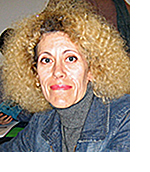 |
Russia, Kemerovo.
Kemerovo State University. Department of English Philology №1.
Doctor of Philology, Professor.
The Anthropocentrism of Linguistic Categories: Chronotope
The article deals with the problem of the anthropocentrism of linguistic categories, based on the principle of restructuring the image of Man through language data and the system of language. Linguistic anthropocentrism is presented in the ideology of anthropomorphism (the similarity of a language's form to that of Man), which automatically refers linguistics as a science to the anthropological category. A naïve conceptualization of the world through language means it is analyzed according to the semantics of temporalization, and the category of chronotope in the English and Russian languages. This demonstrates a realization of the anthropomorphic principle in the language mind.
Key words: anthropocentrism, anthropomorphism, naïve picture of the world, conceptualization, temporality, chronotope, deictic category
References
- Stepanov Ju. S. Imena, predikaty, predlozhenija (Semiologicheskaja grammatika). — M. : Nauka, 1981. — 360 s.
- Stepanov Ju. S. V mire semiotiki // Semiotika. — M. : Raduga, 1983. — S. 30.
- Riker P. Metaforicheskij process kak poznanie, voobrazhenie i oshhushhenie // Teorija metafory. — M. : Progress, 1990. — S. 427.
- Parti V. H. Grammatika Montegju, myslennye predstavlenija i real'nost' // Semiotika. — M. : Raduga, 1983. — S. 285-305.
- Hintikka Ja. Logiko-jepistemologicheskie issledovanija. — M. : Progress, 1980. — S. 44.
- Eco U. A Theory of Semiotics. — Bloomington: Indiana Univ. Press, 1979. — P. 61.
- Stepanov Ju. S. V trehmernom prostranstve jazyka. — M. : Nauka, 1985. — 332 s.
- Gasparov B. M. Ustnaja rech' kak semioticheskij ob#ekt // Semantika i nominacija ustnoj rechi: Uchen. zap. Tartuskogo un-ta, 1978. Vyp. 442. — S. 106.
- Turaeva Z. Ja. Kategorija vremeni: Vremja grammaticheskoe i vremja hudozhestvennoe. M. : Vysshaja shkola, 1979. — S. 29.
- Apresjan Ju. D. Izbrannye trudy, tom II. Integral'noe opisanie jazyka i sistemnaja leksikografija. — M. : Shkola «Jazyki russkoj kul'tury», 1995. — S. 351.
- Bunge M. Prostranstvo i vremja v sovremennoj nauke // Voprosy filosofii. 1970, №3. — S. 91.
- Uspenskij B. A. Istorija i semiotika (Vosprijatie vremeni kak semioticheskaja problema) //Izbrannye trudy. T. 1. M. : Shkola «Jazyki russkoj kul'tury»,1996. — S. 40.
- Tolstoj N. I. Jazyk i narodnaja kul'tura. Ocherki po slavjanskoj mifologii i jetnolingvistike. M. : «Indrik», 1995. — S. 153.
- Bulygina T. V. , Shmelev A. D. Temporal'nyj dejksis. Obshhie zamechanija // Chelovecheskij faktor v jazyke: Kommunikacija, modal'nost', dejksis. — M. : Nauka,1992. — S. 236-242.
- Arutjunova N. D. Jazyk i mir cheloveka. — M. : Jazyki russkoj kul'tury, 1998. — 896 s.
- Uspenskij B. A. Istorija i semiotika (Vosprijatie vremeni kak semioticheskaja problema). Ukaz. soch. — S. 64.
- Bahtin M. M. Voprosy literatury i jestetiki. Issledovanija raznyh let. — M. : Hudozhestvennaja literatura,1975. — C. 235.
- Ju. M. Malinovich. Antropologicheskaja lingvistika kak integral'naja nauka //Antropologicheskaja lingvistika: koncepty, kategorii. — Moskva-Irkutsk: izd-vo IGLU, 2003. — S. 20.
|
 |
Yuriy RAZINOV
Russia, Samara.
Samara State University.
Department of Philosophy, Humanities faculties. Ph. D., professor.
LFalse as the Fallen: An Analysis of the Early Greek Concept of ψεῦδος
The paper investigates the semantic variety of falsity. The author identifies and analyzes the complex constitution of falsity on material from early Greek thought. The concept of falsity is presented in various aspects and forms, especially in relation to such modes as oblivion, delusion and deception. Treating a lie as a dual phenomenon, comprised of concealment and being-hidden, the author distinguishes between two forms: latent and screening concealment. An analysis of the energetic aspect of the early Greek concepts "Alethea" and "pseudos" allows him to expose the lies as a phenomenon of the Fall.
Key words: truth, lies, concealment, oblivion, deception, screen
References
- Hajdegger M. Parmenid / per. s nem. A. P. Shurbeleva. SPb.: Vladimir Dal', 2009.
- Hajdegger M. Osnovnye ponjatija metafiziki // Voprosy filosofii. 1989. № 9. S. 116–163.
- Platon. Kratil / per. T. V. Vasil'evoj // Platon. Sobr. soch.: v 4 t. T. 1. M.: Mysl', 1990. S. 613–476.
- Losev A. F. Primechanija k dialogu «Kratil» // Platon. Sobr. soch.: v 4 t. T. 1.
- Vejsman. A. D. Grechesko-russkij slovar'. S. 1323; Dvoreckij I. H. Drevnegrechesko-russkij slovar' / pod. red. S. I. Sobolevskogo: v 2 t. T. 2, «A–L». M.: Gos. izd-vo inostr. i nac. slovarej, 1958.
- Dvoreckij I. H. Drevnegrechesko-russkij slovar' / pod. red. S. I. Sobolevskogo: v 2 t. M.: Gos. izd-vo inostr. i nac. slovarej, 1958. T. 1.
- Hajdegger M. Bytie i vremja. M.: Ad marginem, 1997.
- Latinsko-russkij slovoobrazovatel'nyj slovar' / Avt. -sost. G. Vs. Petrova. M.: «Oniks»; «Mir i obrazovanie», 2008.
- Die Fragmente der Vorsokratiker. Griechisch und deutsch / Von H. Diels; hrsg von W. Kranz. 9 Aufl. I–III. Bd I. Berlin, 1960.
- Razinov Ju. A. Ponjatija «istinnogo» i «lozhnogo» u Gomera // Vestnik Samarskogo gosudarstvennogo universiteta. Samara: Izd-vo «Samarskij universitet», 2012. № 8 (99). S. 25–31 / http://vestnik. ssu. samara.ru/articles/99_4. pdf
- Gomer. Illiada; Odisseja / per. s drevnegrech. V. V. Veresaeva. M.: Prosveshhenie, 1987.
- Heidegger M. Gesamtausgabe / Abt. II. Vorlesungen 1923–1944. Bd. 54. GmbH; Frankfurt a. M.: Klostermann, 1983.
- Gesiod. Polnoe sobranie tekstov / vstupitel'naja stat'ja V. N. Jarho. Kommentarii O. P. Cybenko i V. N. Jarho. Labirint, 2001.
- Hesiod. The Homeric hymns and Homerica / With an eng. translat. by Huge G. Evelin-White. London: W. Heineman; New York: The Macmillan Co. 1914.
- Platon. Pir // Platon. Sobr. soch.: v 4 t. T. 2 / per. s drevnegrech., obshh. red. A. F. Loseva [i dr.]. M.: Mysl', 1993. S. 81–134.
|
Book Reviews
|
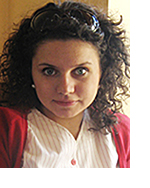 |
Russia, St. Petersburg.
Herzen State Pedagogical University.
PhD student, department of theory and history of culture.
An Analytical Approach in Visual Studies
A Review of Oliver Graus's Book "Emotions and Immersion: Key Aspects of Visual Studies"
The review provides an analysis on O. Graus's work "Emotions and immersion: Key aspects of visual studies" and his research methods are presented. The aim of the work is to follow the development of immersive pictures. This is successfully reached by applying an analytic algorithm, constructed by Grau and employed on the chosen media.
Key words: visual studies, cultural history of emotions, visual media
References
- Grau O. Fantasmagoricheskoe vizual'noe koldovstvo XVIII stoletija i ego zhizn' v mediaiskusstve / per. s nem. M. A. Stepanova. // Mezhdunarodnyj zhurnal issledovanij kul'tury. — 2012. №5(6). — S.101–110.
- Jelkins D. Devjat' tipov mezhdisciplinarnosti dlja vizual'nyh issledovanij. Otvet na stat'ju Mike Bal' «Vizual'nyj jessencializm i ob#ekt vizual'noj kul'tury». Logos №1. 2012. — S. 256.
- Grau O. Jemocii i immersija: kljuchevye jelementy vizual'nyh issledovanij. / per. s nem. A. M. Gajsina. — SPb.: Jejdos, 2013. — S. 10.
|
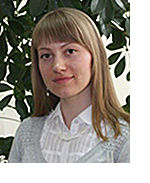 |
Natalya BOGDANOVA
Russia, Samara.
Samara State University. Sociologist.
"Tuning in' to Things" or the Book on "How to Experience the Routine as a Precious Thing"
This article is a review on the book "The Power of Simple Things", edited by S. A. Lishaev and the united efforts of modern philosophers in the ontological, cultural and anthropological conceptualization of things, the estimation of "simple" things and the conditions of an "appointment" with them. The ways in which to "hear" a thing described in detail, as well as the broad views of the authors on "simplicity" and "the thing", are considered by the reviewer as one of the book's indisputable advantages, allowing readers to construct their own point of view on simple things.
Key words: thing, "simple thing", everyday life, "material turn", "to hear" things
References
- Balla-Gertman O. A. Pojetika poter': k antropologii veshhi // Sila prostyh veshhej: sb. st. / pod red. S. A. Lishaeva. — SPb.: Aletejja, 2013. C. 106–111.
- Grjakalov A. A. «Monodramy veshhej» i sub#ektivnost': predely zabvenij i nezabvennoe // Sila prostyh veshhej: sb. st. / pod red. S. A. Lishaeva. — SPb.: Aletejja, 2013. C. 81–105.
- Zimmel' G. Rama kartiny. Jesteticheskij opyt / Sociologija veshhej: sb. st. / pod red. V. Vahshtajna. — M.: Izdatel'skij dom «Territorija budushhego», 2006. S. 53.
- Ivanenko E. A. , Koreckaja M. A. , Savenkova E. V. Gekatonhejr i cvetochek, ili kak vozmozhna filosofija prostyh veshhej // Sila prostyh veshhej: sb. st. / pod red. S. A. Lishaeva. — SPb.: Aletejja, 2013. C. 41–43.
- Lishaev S. A. Metafizika prostyh veshhej (prostaja veshh' kak mesto sborki mira i cheloveka) // Sila prostyh veshhej: sb. st. / pod red. S. A. Lishaeva. — SPb.: Aletejja, 2013. C. 25–30.
- Lishaev S. A. Pervoe, chto zapomnilos' (veshh' v biograficheskom kontekste) // Sila prostyh veshhej: sb. st. / pod red. S. A. Lishaeva. — SPb.: Aletejja, 2013. C. 28.
- Lishaev S. A. Schast'e kak prisutstvie // Sila prostyh veshhej: sb. st. / pod red. S. A. Lishaeva. — SPb.: Aletejja, 2013. C. 378.
- Mihajlova M. V. Filosofija prostyh veshhej: cozercatel'nost' i sobytijnost' // Sila prostyh veshhej: sb. st. / pod red. S. A. Lishaeva. — SPb.: Aletejja, 2013. C. 12–16.
- Razinov Ju. A. Dasein veshhej, ili o chjom mozhet povedat' trubka // Sila prostyh veshhej: sb. st. / pod red. S. A. Lishaeva. — SPb.: Aletejja, 2013. C. 49.
- Safonova T. O sociogeneze koshach'ej lichnosti // Bespredel'naja sociologija: Perezagruzka. Sb. jesse. CNSI: Unplugged / Pod red. Nartovoj N., Pachenkova O., Sokolova M., Chikadze E. — SPb.: CNSI, 2006. S. 133–142.
- Sekackij A. K. Ot formacii veshhej k jepohe tekstov // Sila prostyh veshhej: sb. st. / pod red. S. A. Lishaeva. — SPb.: Aletejja, 2013. C. 69–80.
- Serikov A. E. Podarok kak veshh' opyt cinichnogo issledovanija // Sila prostyh veshhej: sb. st. / pod red. S. A. Lishaeva. — SPb.: Aletejja, 2013. C. 327.
- Alger, J. M., Alger, S. F. (1999) 'Cat Culture, Human Culture: An Ethnographic Study of a Cat Shelter'. Society & Animals, Vol. 7, Issue 3, October. P. 199–219.
|
|
|
 |
LAST ARTICLES
Sunday, 22 September 2013 | Olga Kirillova Посвящается В. Л. Рабиновичу Насмерть загоню? Не бойся — ты же, брат, не Брут: Смерть мала и ненадолго, Цезарь... Comment: 1
Saturday, 28 October 2017 | Alexander Lyusiy Сакральная семиосфера северного города: монография/Д.Л.Попова; М-во образования и науки Российской Федер,... Comments: 0
Tuesday, 26 June 2012 | Alexander Lyusiy В основе материала — выступление автора на Международном конгрессе «Россия и Польша: память... Comments: 0
Friday, 14 January 2011 | Margarita Gudova The article deals with the industry glossy magazines as an agent of modernization of consciousness and the transition from the patriarchal and industrial models to the identification of... Comments: 3

|




















